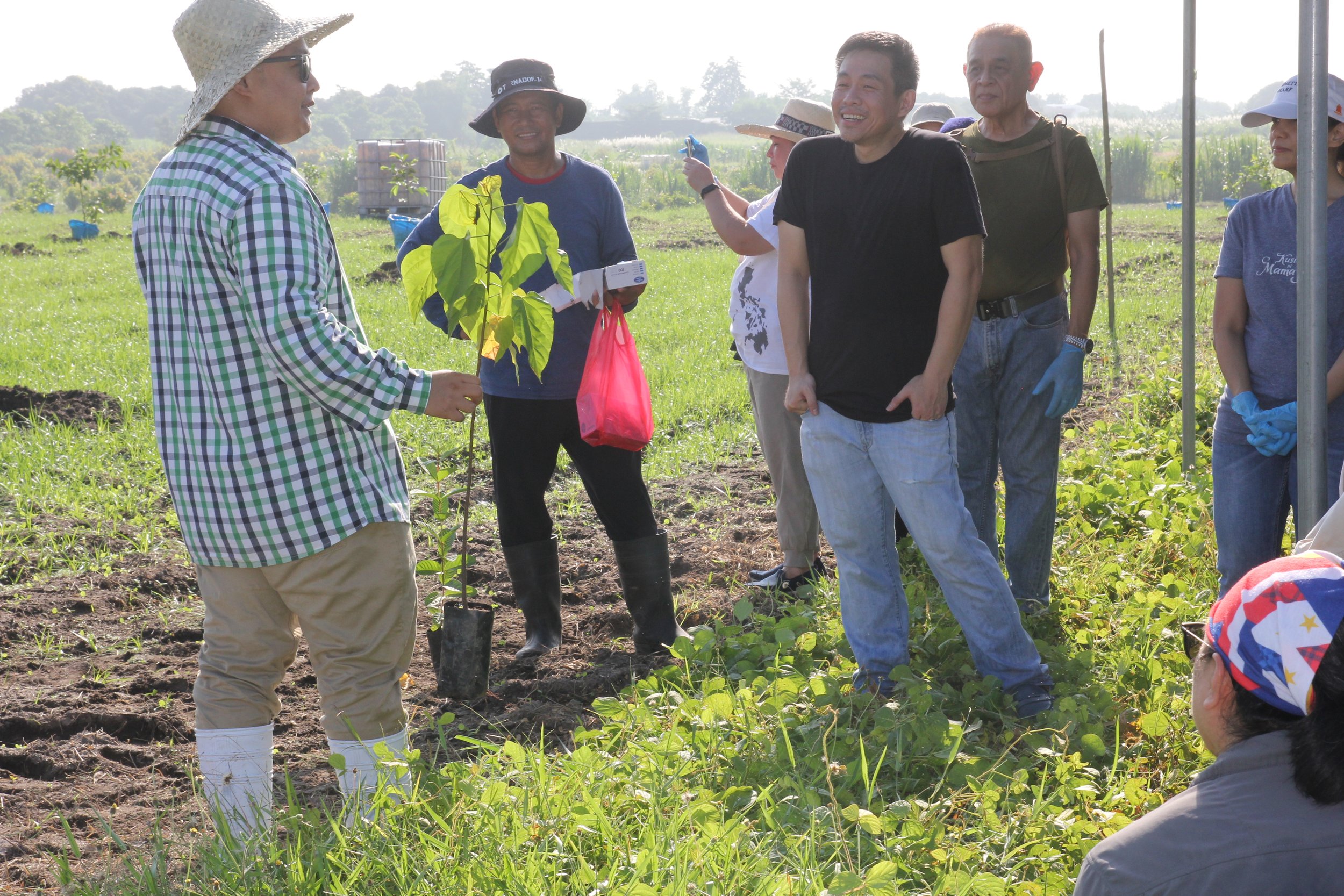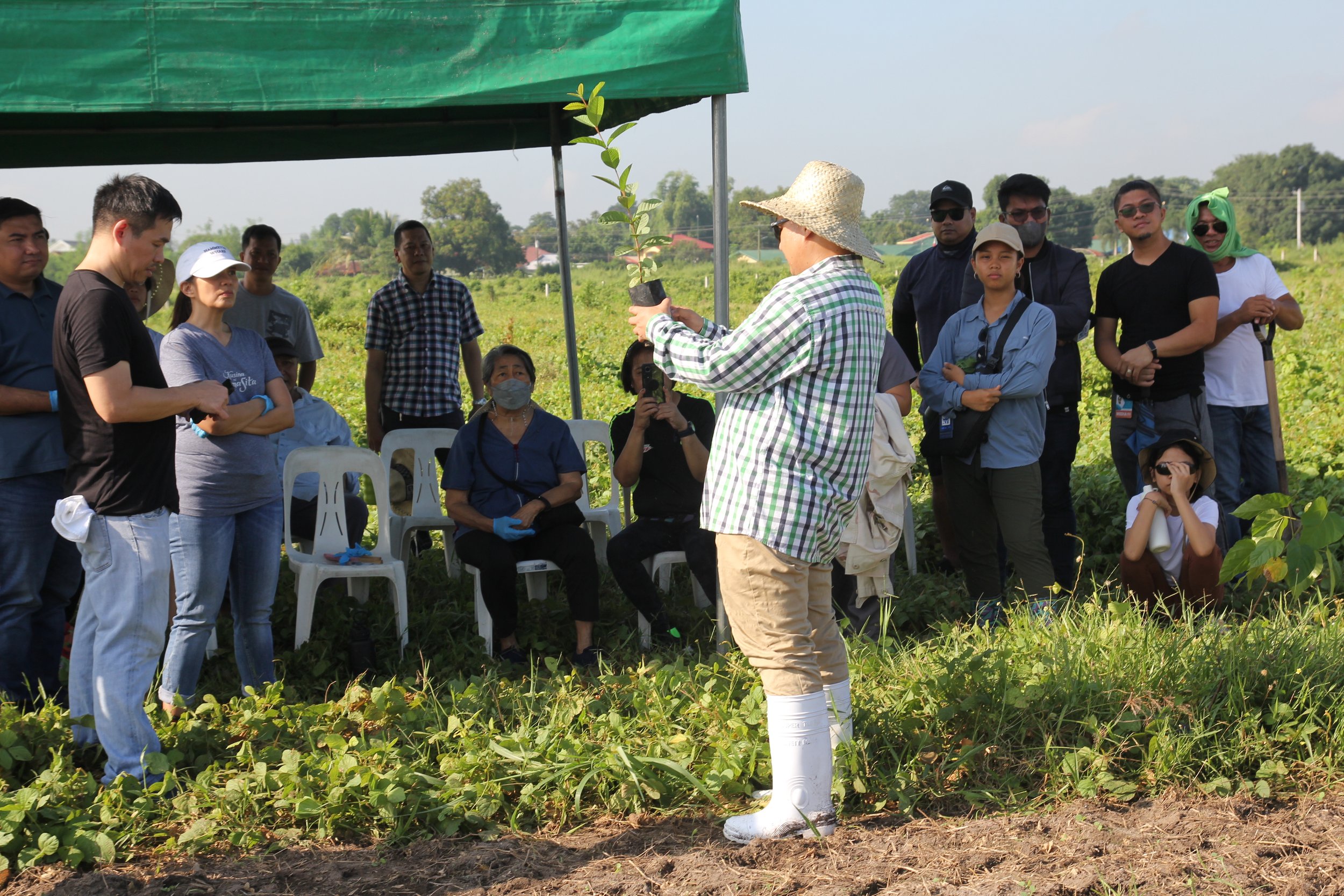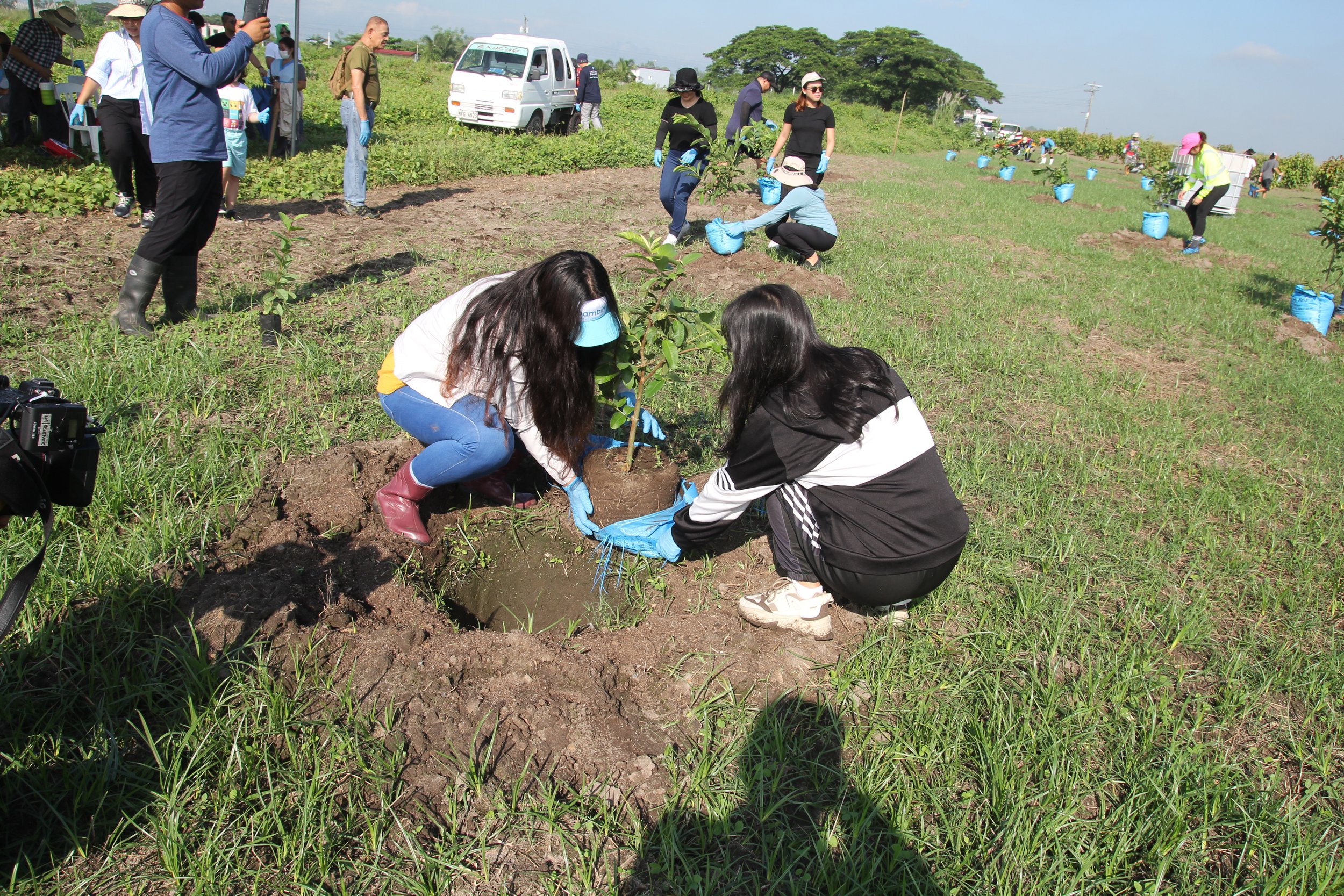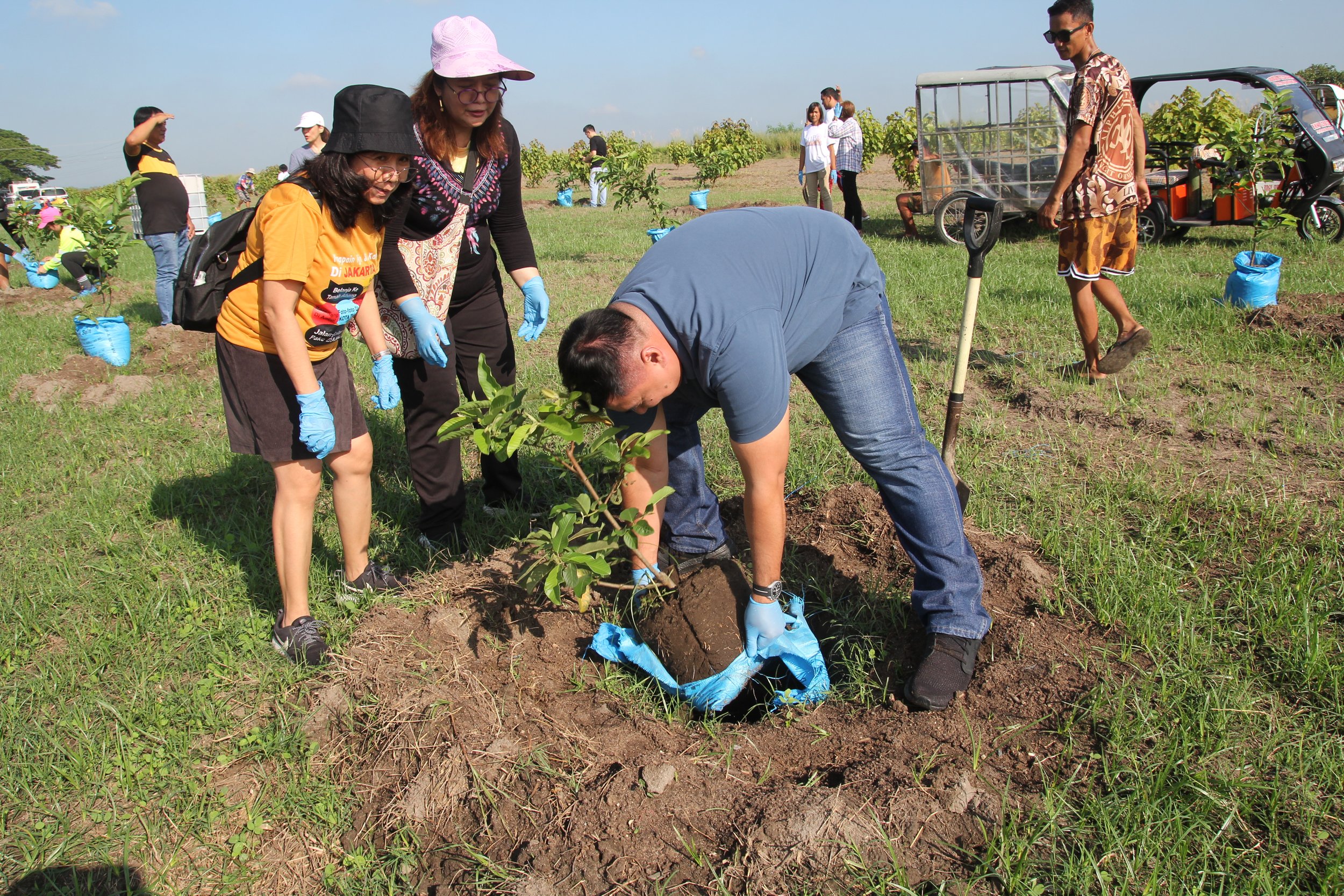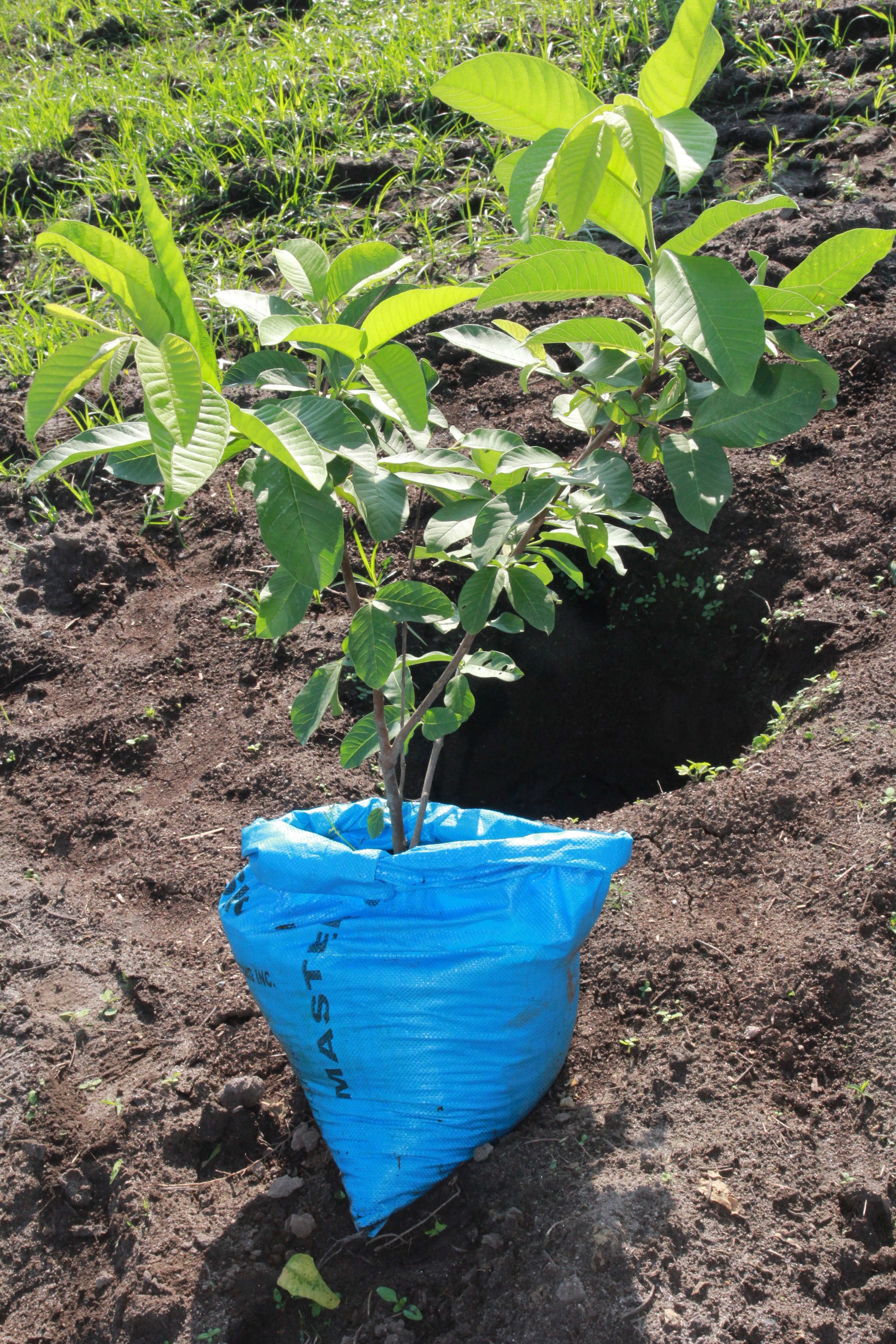The Mama Sita Foundation (MSF) together with various advocacy groups recently held a tree planting activity at a privately-owned 12-hectare farm located in Barangay Suclaban, Mexico, Pampanga to celebrate UNESCO’s Day of the Galleon, a historical event which marks the arrival of the first Manila galleon in Acapulco, Mexico, on October 8, 1565.
Currently managed by the MSF, the farm is envisioned to be a model nursery for highly marketable crops that will serve local food manufacturers’ rising demand for raw materials. “We want these model nurseries to attract agri-investors, especially young entrepreneurs and returning overseas Filipinos who are looking for lucrative and meaningful investments. We will offer affordable planting materials and portions of this farm as investment sites,” said Clara Reyes Lapus, President of the Mama Sita Foundation.
On the same day, MSF shared via Zoom an audio-visual (AVP) presentation featuring various topics under the umbrella theme of agricultural sustainability.
To a global audience comprising different advocacy groups, students, media, government representatives, and concerned citizens, the AVP presentation delivered messages from various experts on the significance of the Day of the Galleon, the importance of farming and agriculture to nation-building, the value of preserving agricultural lands, and farm tourism, among other topics.
The Galleon Trade, which flourished for more than three centuries played a critical role in advancing agriculture by facilitating the exchange of crops and farming techniques among various regions. It was a historical breakthrough that had vast implications on economies, food security, culture, and heritage.
In her talk at the Zoom AVP, culinary historian and author Felice Prudente Sta. Maria said that “Nations seldom celebrate dates when they fell under colonial rule. The Day of the Galleon is intertwined inextricably with arrival of Spanish colonialism. However not to be overlooked is that the galleon experience had a positive side. It was the vehicle by which our ancestors transitioned from bartering into a money economy and from being simply disengaged island communities fighting each other into Filipinas, a single, united political entity appearing on the global map.”
“Day of the Galleon reminds us that every generation needs to handle changes in such a way as to benefit the present and the future. We urge everyone to support a popular movement that continues championing thoughtful and just efforts in agriculture to protect our food security and culinary heritage,” adds Sta. Maria.
Meanwhile, Bart Manalang Lapus, Farm Management Officer of MSF encouraged the planting of achuete, tamarind, and guava. “I would like to propose the planting of guava, tamarind, and achiote trees. These species hold the key to transforming our economic landscape and rejuvenating lands that many thought were barren and lifeless. In a world where industries are constantly in search of safe and quality raw materials, it is essential to think beyond the conventional way of planting crops and explore the untapped potential of these trees. Guava, tamarind, and achiote are the unsung heroes that have been quietly waiting in the wings, ready to take center stage in our economic and agricultural revitalization.”
Also featured in the AVP are Engr. Christopher V. Morales, Assistant Secretary and Director for Farm Tourism Program of the Department of Tourism (DOT), Secretary Romulo V. Arugay of the Commission on Filipinos Overseas (CFO), Counselor Lupiño Lazaro Jr., Agricultural Counselor of the Philippine Embassy in Washington D.C., and Vellie Dietrich Hall, a planting advocate and consultant to the US Department of Defense.
“Day of the Galleon looks back at a historic voyage that introduced the world to Philippine crops and showcased the incredible bravery and resilience embedded in our Filipino identity. In line with the efforts of the DOT, we are actively championing Farm Tourism as a promising avenue for Philippine tourism. Farm tourism has evolved into a captivating nature and culture-based experience, offering travelers a unique connection to our heritage,” said Assistant Secretary, Engr. Christopher V. Morales of the DOT.
“Our Filipino migrants abroad, despite their distance from the Philippines keep their ties to their country strong, and this is evidenced in various forms of resources that they have invested in order to support small-scale, high-impact projects that contribute to the social and economic development of the Philippines. From 1990 to 2022, development assistance from migrant Filipinos amounting to Php 28 million have benefitted 22,250 farmers in various provinces. This continued inflow of assistance seeks to augment the initiatives of the national government in order to help our local farming communities,” shared Secretary Arugay.
Plant advocate Vellie Dietrich Hall, a consultant to the US Defense Department belabors the lack of education regarding the importance of planting trees. “It’s about time the community got together and be educated about the need to plant trees. Planting trees serve as hope, not just for the community but for the nation,” said Dietrich Hall.
Counselor Lupiño Lazaro Jr., Agricultural Counselor of the Philippine Embassy in Washington D.C., closed the AVP with a message of commendation and encouragement, “This bodes well with our mission of promoting sustainable agriculture. I commend the Mama Sita Foundation and its partners for their tireless efforts in promoting farming and agri-ventures, including through the foundation’s model nurseries, which is vital for our country’s economic growth and achieving food security.
“We want to inspire people, especially the younger generation to plant trees and to take up farming, and look at farm lands in a new light. Farms could be profitable and could generate new revenue streams apart from crop yields such as agro-tourism. Apart from that, planting will rejuvenate our soils and further enrich our botanical bio-diversity,” said Lapus in reiterating MSF’s vision for these initiatives.

